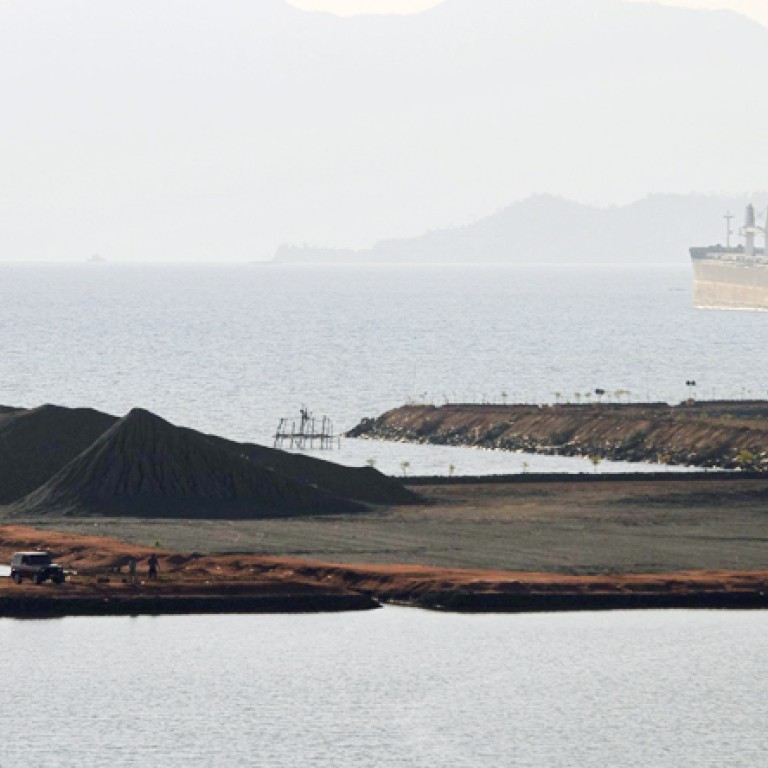
New | Ore ban threatens Chinese factories
Move to boost domestic processing of minerals puts US$2b annual trade at risk and particularly endangers mainland stainless-steel makers
Indonesia, among the world's biggest suppliers of natural resources, halted all mineral ore exports yesterday to try to promote domestic processing in a move that threatens nickel and bauxite industries worth more than US$2 billion in annual shipments.
Halting exports of nickel ore could spark the biggest shake-up in the global nickel trade in more than five years, with Chinese stainless-steel factories that make everything from kitchenware to cars and buildings set to hurt the most.
In one of his most far-reaching economic policy decisions since taking office nearly 10 years ago, President Susilo Bambang Yudhoyono approved the mineral ore export ban.
But in last-minute changes at the weekend, he diluted it to allow exports of copper, iron ore, lead and zinc concentrates to continue, giving a reprieve to United States mining giants Freeport McMoRan Copper & Gold and Newmont Mining, which together produce 97 per cent of Indonesia's copper.
No such relief was offered to the nickel and bauxite industries, clouding the future for state-owned nickel miner Perusahaan Perseroan Aneka Tambang (Antam) and hundreds of other smaller miners.
"Minerals that have to be refined before export are bauxite, nickel, tin, chromium, gold and silver because they don't have intermediate products," said Sukhyar, director general of coal and minerals at the ministry.
The long-planned ban hopes to eventually boost Indonesia's profits from its mineral wealth by forcing miners to process their ores before export. But officials fear a short-term cut in foreign revenue could widen the current account deficit, which has undermined investor confidence and battered the currency.
Yudhoyono's last-minute regulation significantly lowers the minimum processing requirements for copper, manganese, lead, zinc and iron ore to be defined as concentrates. However, officials have said that such exports would only be allowed until 2017.
Under the proposed changes government officials said 66 companies, which include Freeport and Newmont, would be allowed to continue to export "processed mineral" as they have provided assurances to the government that they would soon build the necessary smelters to meet the new rules.
"As long as they can fulfil the requirements, Freeport and tens of national miners are still allowed to export," industry minister M.S. Hidayat said.
More details are expected to be announced this week. The companies likely to feel the most impact of the ban are miners of nickel and bauxite, numbering in the hundreds.

Shortly before the ban took effect, Freeport halted copper exports and said it would not resume them until there was clarity on what could be shipped.
More than 100 mining companies have been forced to reduce or shut down operations because of the uncertainty.
Along with Freeport, Indonesian miner Antam also stopped nickel ore exports a few days ago, the firm's corporate secretary Tri Hartono said.
The Indonesian Mineral Entrepreneurs Association said it planned to challenge the ban in the Supreme Court and Constitutional Court, the two highest courts in the country.
A major economic impact on the country could make the ban a hot issue in this year's legislative and presidential elections.
Thousands of mine workers already have been laid off ahead of the ban, sparking street protests in Jakarta against the regulations.

